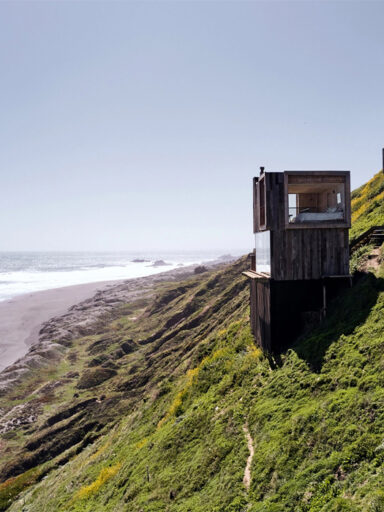The most striking update comes straight from Audi’s motorsport division. The eMTB 2.0 sports livery inspired by the Dakar Rally-winning RS Q e-tron racecar – the same vehicle that dominated desert racing with hybrid electric power.
Designer: Audi
This isn’t aesthetic marketing. It represents Audi’s commitment to electrified performance across every category they touch, creating visual continuity between four-wheel dominance and two-wheel capability through the kind of details-obsessed approach that separates luxury brands from everyone else.
The connection runs deeper than surface graphics. Audi first found off-road success in the World Rally Championship during the 1980s with quattro all-wheel drive technology, shaping the brand’s performance DNA for decades. That same competitive spirit now flows into electric two-wheel territory.
The Italian manufacturer Fantic brings legitimate expertise to this partnership. Based on Fantic’s XEF 1.9 Factory enduro platform, the eMTB inherits proven geometry and engineering from specialists who understand serious off-road performance. No badge engineering here – just substance behind the premium positioning.
Component Upgrades That Actually Matter
Audi upgraded the drivetrain with SRAM’s GX Eagle Transmission AXS electronic rear derailleur. Wireless shifting responds instantly to thumb commands across a 12-speed setup working with an SRAM XX SL Eagle cassette featuring 10-52T range – climbing gears for steep technical sections, speed for flowing descents.
Stopping power comes from enhanced EPTA STAGE brake rotors measuring 220mm front and 203mm rear, paired with Sunstar Braking’s F.I.R.S.T. calipers for consistent performance during long technical descents where heat buildup typically destroys brake feel.
The suspension represents the biggest performance leap. Öhlins components handle both ends – RXF38 m.2 fork up front with 180mm travel, plus TTX22m.2 coil-sprung rear shock. These aren’t budget compromises; Öhlins builds suspension for MotoGP and World Superbike racing. The fully adjustable setup delivers race-proven technology to trail riding with 180mm of travel capability.
Smart Electric Integration
Power comes from a Brose S-MAG 250-watt motor producing 90 Nm of torque. The 720-Wh battery pack integrates completely within the aluminum frame, maintaining clean aesthetics while providing 12 to 90 miles of range depending on assist level and terrain demands.
Four assist modes tailor power delivery with surgical precision. Eco mode calibrates for maximum efficiency and range with notable electrical assistance. Tour brings balanced power for varied terrain with significant electrical boost. Sport mode engineers powerful assistance for aggressive cycling demands, while Boost delivers maximum electrical assistance for ascending the most challenging, hilly routes.
A small digital display mounted on the handlebars provides key data at a glance – assist level, battery charge status, and speed tracking. When battery levels drop below 10%, the charge indicator flashes in the display’s top right corner, preventing unexpected power loss mid-ride.
The mixed wheel setup balances rollover capability with agile cornering through 29-inch front, 27.5-inch rear configuration riding on Mavic tubeless-ready wheels wrapped in Vittoria e-bike-rated tires. Larger front wheels maintain momentum through rough sections and obstacles while the smaller rear wheel enables quick direction changes and responsive handling in tight switchbacks.
Premium Positioning in Crowded Market
This pricing puts the Audi eMTB 2.0 in direct competition with established electric mountain bike specialists, but the $5,850 cost reflects genuine component quality rather than badge engineering markup.
Öhlins suspension alone commands premium pricing. SRAM’s electronic shifting typically appears on bikes costing significantly more. What separates this from cheaper alternatives lies in integration quality and brand support – Audi’s dealer network provides service access that boutique bike brands cannot match, while the Fantic relationship ensures ongoing parts availability and technical support beyond typical direct-to-consumer electric bike experiences.
Deliveries begin this September through Audi Genuine Accessories. The company offers a complete lifestyle ecosystem with branded gloves, cycling jerseys, shorts, water bottles, packs, and compatible bike racks for select Audi models – building integrated ownership experience beyond the bike itself.
The Bigger Electric Picture
Audi’s electric bike commitment reflects broader electrification strategy across their entire product range.The same engineering philosophy driving their e-tron vehicle lineup influences eMTB development through sophisticated power management, premium component integration, and user experience optimization. This approach resonates with customers who appreciate German engineering precision in every product they own, extending Audi’s brand values into recreational territory while delivering legitimate performance for serious off-road riding.
For riders seeking luxury brand cachet with substance behind the badge, the Audi eMTB 2.0 delivers upgraded performance at a lower price point than its predecessor, combining Dakar-inspired aesthetics with Öhlins suspension and SRAM electronics that ensure the bike performs as impressively as it appears.
The post Audi’s Second-Gen Electric Mountain Bike Brings Dakar Styling and Premium Components Under $6K first appeared on Yanko Design.
